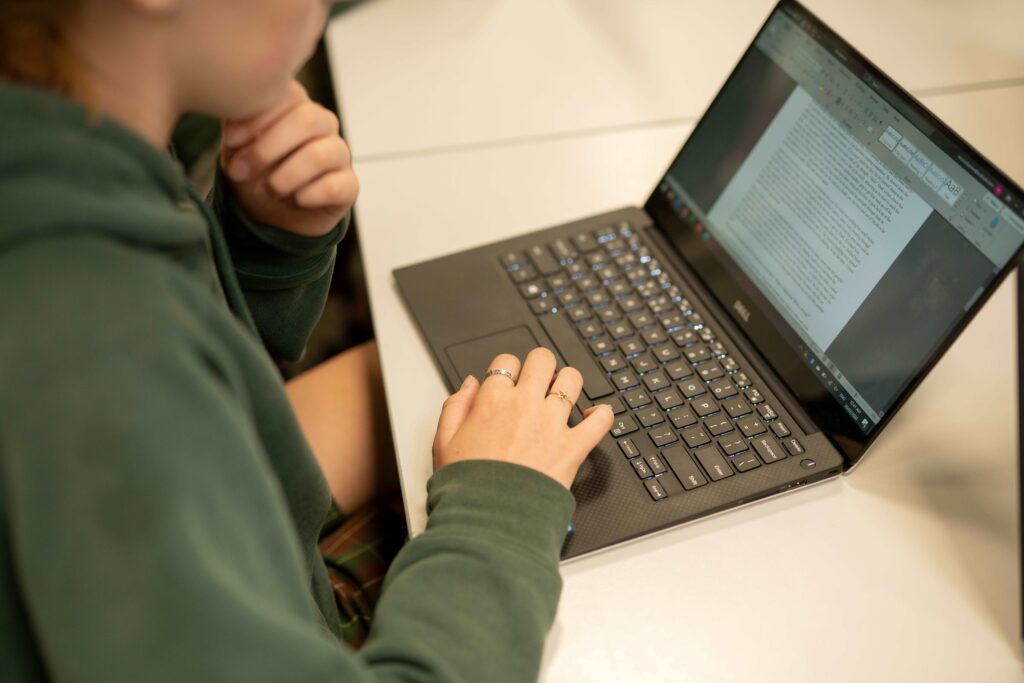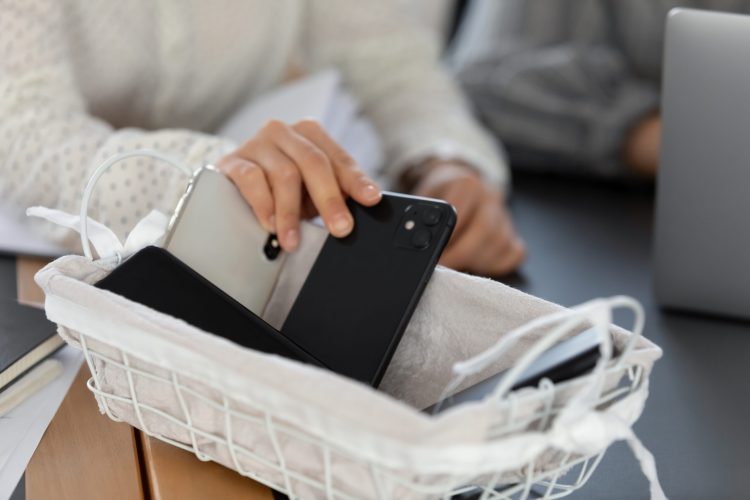In a world where we’re constantly logged on, plugged-in and connected, a digital detox is the mental holiday we never knew we needed. So how does the mobile phone ban in schools help achieve this?
We live in a world of hyperconnectivity. Scrolling social media has become a common boredom tick; instant responses to emails and messages at any hour of the day is the root of subtle anxiety; and our ability to remain present and avoid distractions is a dying art.
There’s no doubt there are also many benefits of living in a digital world, like being able to stay in touch with people, instant news and ease of multitasking, but when it comes to limiting access to phones during school hours, the benefits outweigh the negatives.
From term 3, 2023, students in all South Australian public high schools will need to put away the personal device. Expectedly, some students are a little nervous about being forced to unplug in order to tune-in to the classroom.
The goal of the policy, introduced by the South Australian Government, is to create the best possible learning environment and give students a break from screens. It harks back to a time when handball and a kick of the footy were more common activities than Snapchat filters, and classroom connection was face-to-face or hidden notes passed under a desk, rather than through strained eyes on a phone screen.
So, at the risk of (sometimes) stating the bleeding obvious, here are just a few benefits of giving students the opportunity to break up with mobile phones during school hours.
1. It creates more time for creativity.
According to the Australian Communications and Media Authority, just under half of all students aged 6 to 13 used a mobile phone in 2020, with most children using phones for playing games, taking photos or videos, and using apps. With the constant access to programs that help fill the time, it minimises the time the brain has to be creative and imaginative. Boredom is where our creative brains work best, after all.

2. It removes distraction and allows students to learn value in disconnecting from the screen.
Some say removing phones from the classroom also removes the opportunity for students to learn how to stay focused despite distractions, but it’s evident this isn’t currently happening. Research by Harvard Medical says excessive use of a mobile phone activates a similar part of the brain to gambling, suggesting social media uses a reward system and a young brain isn’t developed enough to activate self-control to prevent obsessive behaviour. Minimising phone use during school hours gives the brain an opportunity to take respite from blue-light and take a break from a potential addiction.
3. There’s more time for socialising and being active during breaks.
Yes, texting is socialising. But it can’t replace a face-to-face conversation for showing empathy, understanding and friendship. Nor can it replace spontaneous dancing, strolls around the schoolyard, four square or scratch matches.
4. Evidence shows that students perform better in their studies.
According to some evidence that came out of banning mobiles in schools, plus feedback received from other states that have already introduced the ban, keeping mobile phones out of classrooms results in significantly better performance, particularly for disadvantaged and low-performing students.

5. There are fewer opportunities for cyberbullying.
According to a report released by the eSafety Commissioner in 2020, 44 per cent of teens have had a negative online experience. This included being contacted by a stranger, receiving inappropriate content, or being deliberately excluded. Cyberbullying is never acceptable, and serious cases in Australia are treated as criminal acts. A digital detox during school hours reduces the time students who are experiencing cyberbullying can be exposed to the negative behaviour.
6. It can help to reduce stress, anxiety and depression
Stepping away from smartphones, even for a few hours, can give teenagers a break from stress-inducing content. Think social media comparisons, particularly around body image, or content that causes FOMO. A recent study found much higher rates of depression among university students who used their phones a lot.
Want to know more?
Light reading: Banning mobile phones in schools can improve students’ academic performance. This is how we know.
In-depth reading: The Relationship between Cellphone Usage on the Physical and Mental Wellbeing of University Students: A Cross-Sectional Study.
From the Department for Education: Phones off while school’s on

















